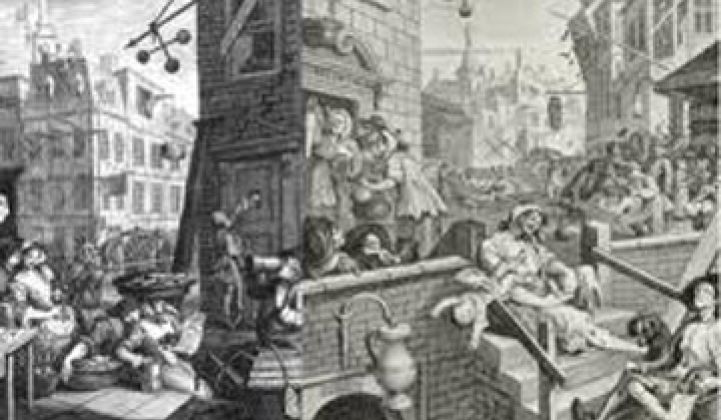Solyndra, the company that makes the cylindrical solar cells that everyone in the industry seems to have an opinion about, has won the contract to put 3,750 of its panels on the Qwest Field Event Center in Seattle.
The Seattle Seahawks, Sounders FC, and several car shows use the venue to entertain Americans. Paul Allen, the Microsoft co-founder, is the chairman of the Seahawks and founded First and Goal, which manages the facility. Allen also boosted the home of the Portland Trail Blazers to LEED Gold status. Next up: ensuring that meat will be used at least 50 percent of the time in Polish dogs.
The Solyndra panels will reduce utility bills by 21 percent and offset 1,346 tons of carbon a year.
Solyndra is easily the most controversial company in solar and rivals Better Place and Bloom Energy for the overall title in green technology. Critics contend that its CIGS solar panels will never economically compete with crystalline panels and that the DOE loan guarantee and over $1 billion in equity investments will go swirling down the S-bend. Solyndra, on the other hand, says its products will dramatically decrease in price over the next few years. It has racked up over $140 million in revenue and design wins with Budweiser and others. It can even plant its panels in greenhouses because the cylindrical shape allows light to fall on plants.
To top it off, the IRS has ruled that companies that install Solyndra solar systems can also get a tax credit for a new roof. Maybe Paul Allen's tax lawyer is sharper than yours.
Elsewhere:
--EnerNOC has landed a deal to provide demand response and other services to Electricity North West Limited in England. Demand response is just beginning to move overseas -- technically, China doesn't even have it yet. EnerNOC is naturally an early mover. In December, it announced it would participate in the Low Carbon London project sponsored by UK Power Networks.
Electricity North West serves 2.4 million customers in Manchester, Cumbria and the northwest parts of England. EnerNOC will also provide its DemandSmart efficiency services in the area, which the company hopes will help broaden its revenue base. (That's a contemporary English street scene in the photo.)
The U.K. opportunity was one of the more prominent topics of conversation at DistribuTECH in February. Like much of the U.S., the U.K. is in the midst of converting its traditional electricity meters into smart meters. And like Texas, U.K. utilities do not sell power directly to consumers; instead, consumers buy it through electricity retailers. As a result, the government would like to see a single standard for smart grid communications across the entire region. Electricity retailing would fail if consumers became locked into a provider because of the protocol attached to their meter.
Thus, many expect a single standard -- mesh, cellular, BTE, or some other proprietary standard -- or a few basic standards to get employed island-wide, with demand response and efficiency applications piled on top of it. The local cellular providers like BT will likely play a huge role in this, but the nation will probably require smart grid know-how from the States.
--At LightFair, d.light design launched the S1, an LED-based solar lantern that will sell for under $8. The company wants to bring electric light to the emerging world. Now, light inside homes comes from wood or coal fires. In an experiment in Sudan, school pass rates jumped from 57 percent to 97 percent after a year with solar lights. So these kind of lights can make a bigger impact than you just swapping out your CFLs.
--The lighting juggernaut rolls on. Later this month, Universal Display will show off an OLED light that emits 58 lumens per watt and lasts 30,000 hours. While that's less powerful than an LED, OLEDs are bendable sheets of plastics and have an number of attributes that many designers love.



